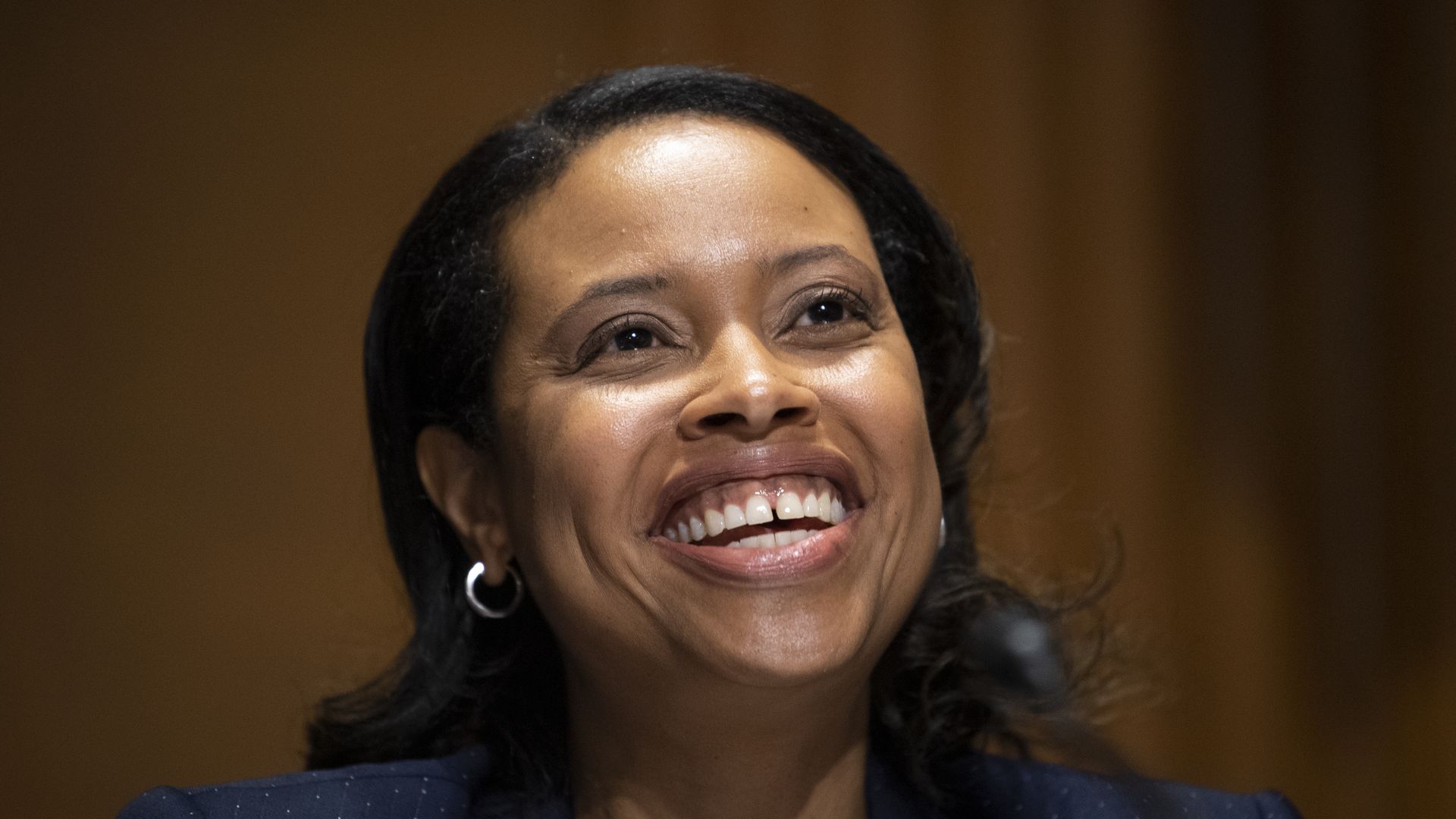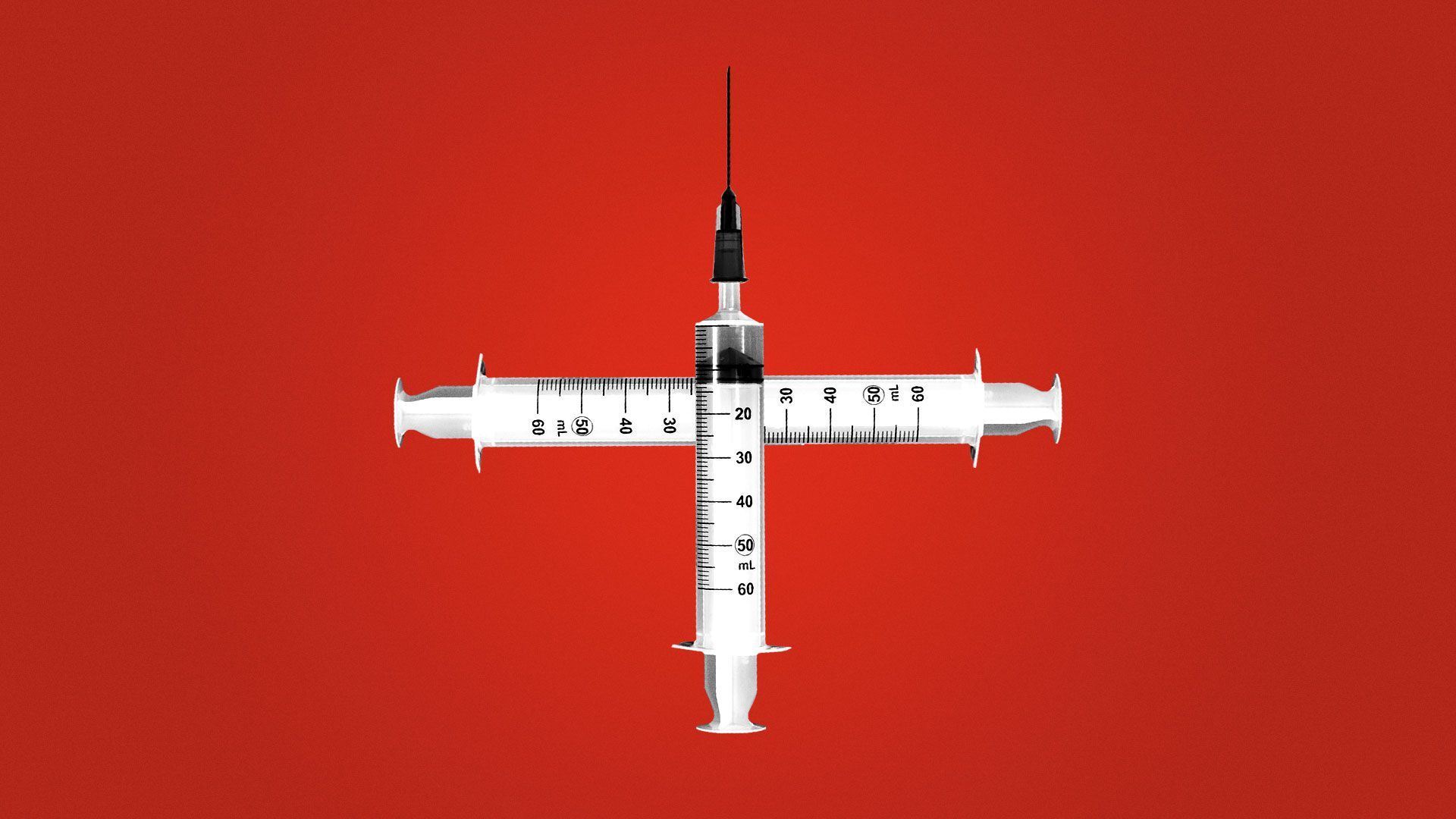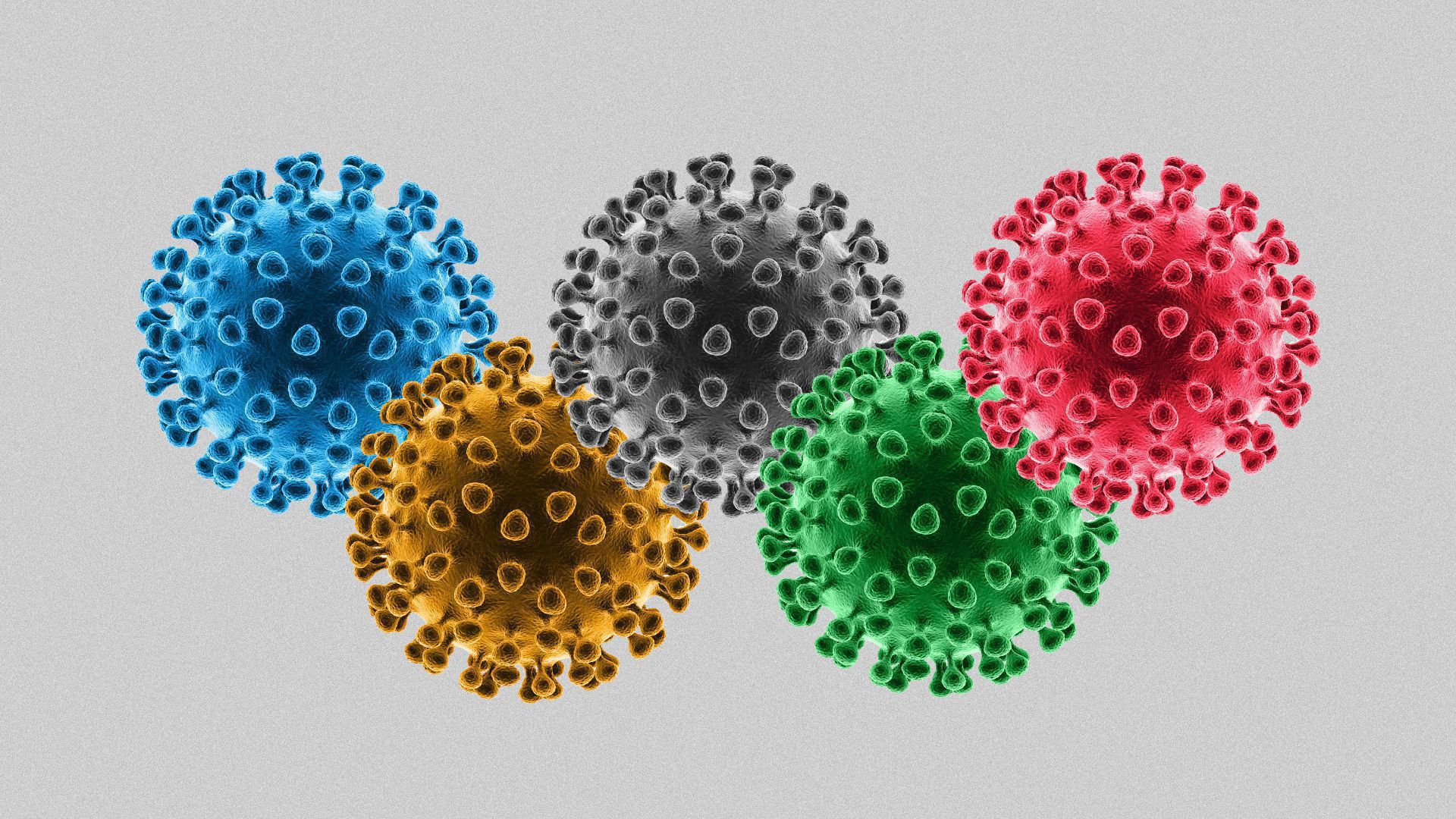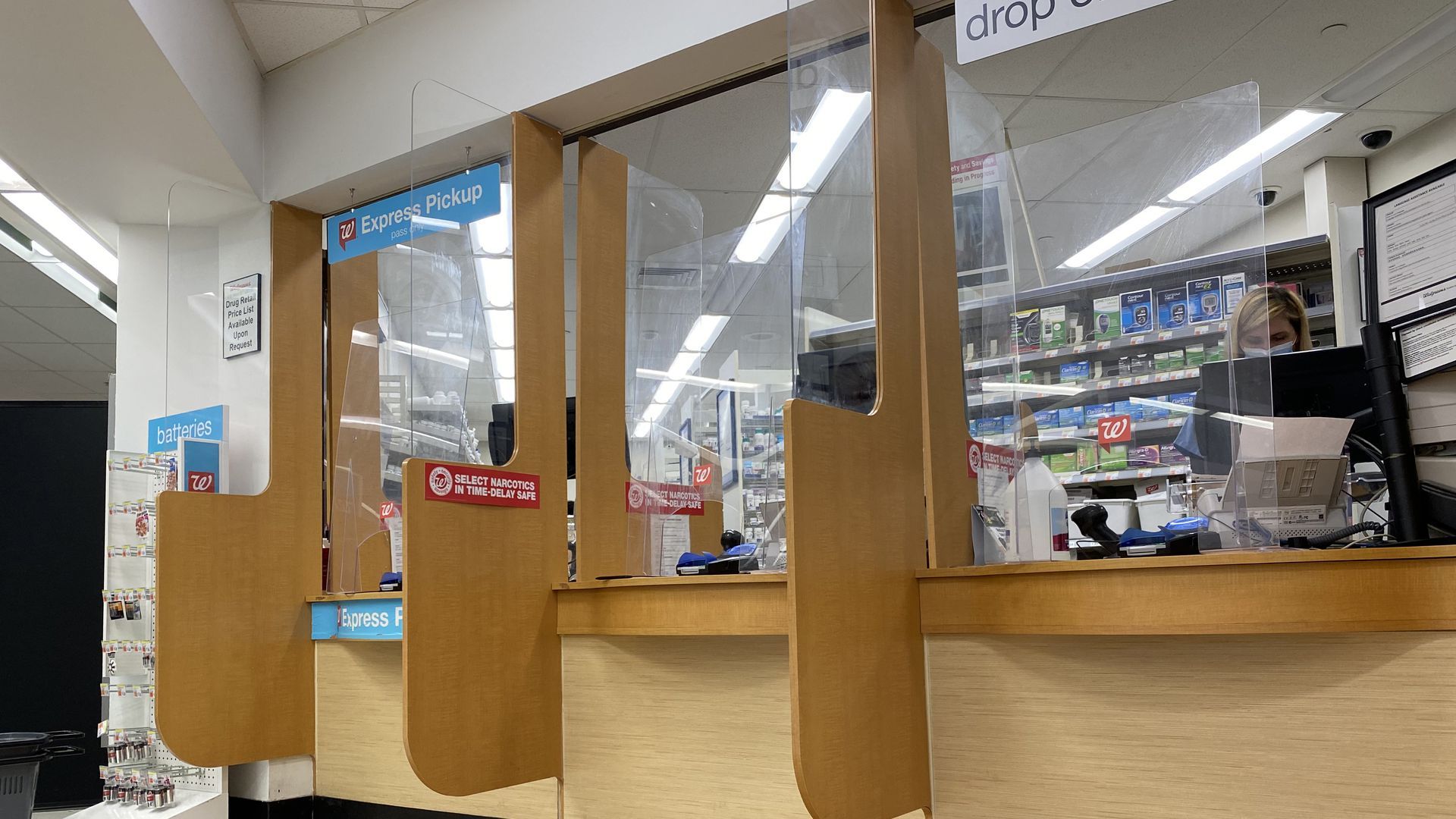| | | | | | | Presented By UnitedHealth Group | | | | Vitals | | By Tina Reed ·May 26, 2021 | | Good morning. Do you have your Memorial Day plans, yet? Officials in the New York City area announced they hope residents heading to the beach this weekend will grab COVID-19 vaccines along with their doses of sunshine. Today's word count is 1,050, or a 4-minute read. | | | | | | 1 big thing: CMS head gets OK, but still no FDA pick |  | | | Chiquita Brooks-LaSure testifies this spring during a nomination hearing to be administrator of the Centers for Medicare & Medicaid Services. On Tuesday, the Senate approved her nomination. Photo: Caroline Brehman-CQ-Roll Call, Inc via Getty Images | | | | More than four months into President Biden's term, the Senate confirmed his pick of Chiquita Brooks-LaSure to lead Medicare and Medicaid. It's still unclear who will lead the FDA permanently. The big picture: These high-profile picks will take office and immediately face a host of consequential decisions. - Not having a CMS administrator has created some "drag" in the system, as career staff hold off on making certain decisions until political appointees are chosen, lobbyists have told me.
- There's also no shortage of major decisions looming ahead of the FDA. But rumors of who will lead the agency have been circulating for months with no public progress made toward appointing that person.
- Meanwhile, the FDA will soon face high-profile requests from drug companies for approvals of new COVID vaccines and treatments, as well as non-COVID therapies like Biogen's Alzheimer's drug aducanumab.
State of play: In March, a group of former FDA commissioners urged the Biden administration to pick up the pace on picking a new FDA commissioner, the Washington Post reported. - Janet Woodcock has served as the interim commissioner since Biden took office in January and is in running for the job. Her selection, however, could be controversial.
- The Wall Street Journal reported last month that the field of candidates broadened to include Katherine Luzuriaga, director of the University of Massachusetts Medical School's Center for Clinical and Translational Science and Florence Houn, who formerly served in senior posts at the FDA. Joshua Sharfstein and Luciana Borio, also former FDA officials, are also believed to be on the short list, WSJ writes.
- Nominating Woodcock could be a nod toward bipartisanship, as a senior Republican Senate aide told Axios' Caitlin Owens that there between one and two dozen GOP votes for Woodcock — which they've told the Biden administration. Republicans aren't likely to vote for Sharfstein.
Go deeper. |     | | | | | | 2. "Breakthrough" COVID cases are rare |  | | | Illustration: Eniola Odetunde/Axios | | | | A small fraction of vaccinated Americans experienced "breakthrough" cases of COVID-19, and an even smaller number were hospitalized, new data from the CDC shows. By the numbers: As of April 30, there were a total of 10,262 breakthrough infections reported across the U.S., when about 101 million Americans had been vaccinated. The majority of those cases (63%) occurred in females and the median patient age was 58 years old. - The preliminary data shows that 27% of the breakthrough infections were asymptomatic.
- 10% of the patients were known to be hospitalized and 2% of the patients died. Of the hospitalized patients, 29% were asymptomatic or hospitalized for a reason unrelated to COVID-19.
What they're saying: "The number of COVID-19 cases, hospitalizations, and deaths that will be prevented among vaccinated persons will far exceed the number of vaccine breakthrough cases," the CDC said. |     | | | | | | 3. Scientists raise new Olympic worries |  | | | Illustration: Aïda Amer/Axios | | | | With less than two months until Tokyo's opening ceremony, a group of scientists is ringing alarms, writing in the New England Journal of Medicine that "canceling the games may be the safest option." Why it matters: As Japan anticipates 20,000 athletes and support staff from 200 different countries, the country remains in a state of emergency, Axios' Marisa Fernandez writes. Driving the news: The authors analyzed the International Olympic Committee's COVID-19 guidelines, noting a lack of involvement from national player associations and "no plan B in the event of an outbreak." The IOC's plan emphasizes mitigation measures like temperature checks that are "often ineffective," the authors write, in addition to several other missing aspects experts pointed out, including: - There is no guidance in risk levels associated with outdoor and indoor sporting events or on high-contact and or low-contact sports.
- Players are not provided masks by the IOC and must bring their own.
- The IOC provides "insufficient detail" on testing frequency and hotel isolation, as well as limited contact tracing.
What's next: The authors request the World Health Organization form an emergency committee to advise a better risk-management approach as it did during the 2016 public health emergency surrounding the Zika virus in Brazil. Share this story. |     | | | | | | A message from UnitedHealth Group | | Helping to advance health equity with actionable insights | | |  | | | | For more than 30 years, the United Health Foundation's America's Health Rankings has provided actionable insights to identify health disparities across the U.S. - Our latest report identifies disparities among seniors, including food insecurity and risk of social isolation.
Read the report. | | | | | | 4. Vaccine myths prove persistent |  Reproduced from KFF COVID-19 Vaccine Monitor; Chart: Axios Visuals Big myths about COVID vaccines are showing real staying power among unvaccinated Americans, KFF president Drew Altman writes in today's column. The big picture: While misinformation isn't the only factor fueling hesitancy, it's an ongoing problem the media, health leaders and trusted messengers need to chip away at. By the numbers: All told, 67% of unvaccinated adults either believed or weren't sure about at least one major falsehood about the vaccines. - One big myth with legs is that the vaccines cause COVID-19. 36% of respondents either thought that was true or weren't sure; it was also the biggest misconception among Black and Hispanic Americans as well as young adults.
- Different myths have gained ground among vaccine-hesitant Republicans: 37% either believed that the vaccines change your DNA, or weren't sure.
Leaders, from Biden on down, can keep hammering away at the facts. So can the media. - Doctors, nurses, community health workers and pharmacists are also important sources of information for unvaccinated Americans and trusted messengers.
- They have a special role to play in their communities clearing up the myths about vaccines that remain among the most hesitant groups.
Go deeper. |     | | | | | | 5. Drug discounts aren't always a good deal |  | | | Photo: Lindsey Nicholson/Education Images/Universal Images Group via Getty Images | | | | Buying prescription drugs through GoodRx, Amazon and other alternative avenues does not guarantee patients are getting a good deal, Axios' Bob Herman writes. The big picture: More people are purchasing their drugs with cash instead of using their health insurance, in large part because they are getting sizable discounts. - But discounted prices often still have no relation to a drug's actual cost.
How it works: The amount people pay out of pocket for their medication is tied to secretive contracts among pharmacy benefit managers, health insurers, distributors, pharmaceutical companies, pharmacies and other entities. Details: Generic versions of the HIV pill Truvada have significantly brought down the drug's price, but not for everyone, according to new research from analysts at drug-pricing firm 46brooklyn Research. Here's what a monthly supply of generic Truvada costs someone through a cash-paying program, according to 46brooklyn: - $1,567 at Amazon, which uses a discount card program owned by Cigna and its PBM Express Scripts.
- $112 at GoodRx, which generates most of its revenue from PBMs.
- $25 at Blueberry, a small, cash-only pharmacy in Pittsburgh that eschews the entire supply chain.
The bottom line: The existence of so many drug-discount programs is an indictment of both America's insurance and pharmaceutical systems. |     | | | | | | A message from UnitedHealth Group | | Working to improve maternal care in underserved communities | | |  | | | | Nearly 1 in 4 women do not receive essential prenatal care. - Through local community partnerships in states like Nevada, Hawaii, Michigan and Ohio, UnitedHealth Group is helping to reduce maternal health disparities.
Learn more about how we're advancing health equity. | | | | | | Axios thanks our partners for supporting our newsletters.
Sponsorship has no influence on editorial content. Axios, 3100 Clarendon Blvd, Suite 1300, Arlington VA 22201 | | | You received this email because you signed up for newsletters from Axios.
Change your preferences or unsubscribe here. | | | Was this email forwarded to you?
Sign up now to get Axios in your inbox. | | | | Follow Axios on social media:    | | | | | |









No comments:
Post a Comment